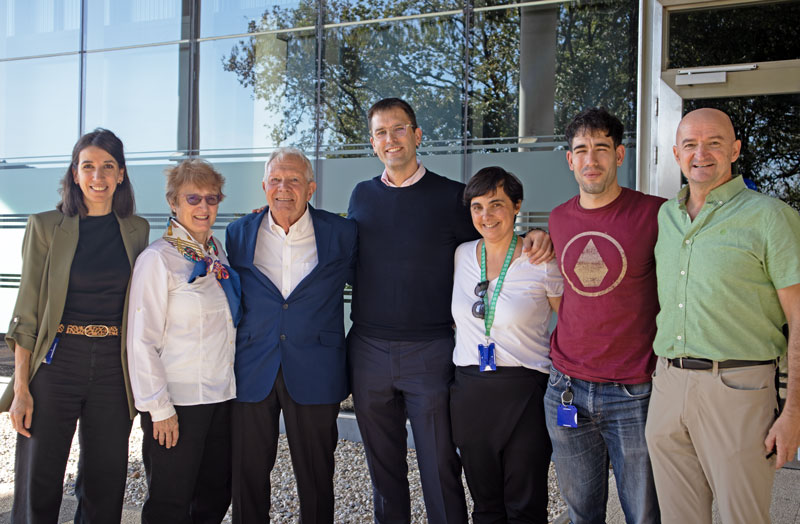
2024/11/06
CIC bioGUNE welcomes Dr. George Brooks to discuss the metabolic importance of lactate
Lactate is a byproduct of anaerobic metabolism that occurs during the breakdown of glucose for energy.
Traditionally seen as a waste product associated with muscle fatigue, lactate plays crucial roles as a signaling molecule and energy source in various physiological processes.
CIC bioGUNE, member of BRTA, has had the pleasure of welcoming Dr. George Brooks, globally recognized as the leading authority on lactate and its metabolism, to deliver a seminar titled “Lactate: Beyond the Waste Product.” Lactate is a byproduct of anaerobic metabolism that occurs during the breakdown of glucose for energy. Traditionally seen as a waste product associated with muscle fatigue, lactate plays crucial roles as a signaling molecule and energy source in various physiological processes.
With a career spanning 53 years at the University of California, Berkeley, Dr. Brooks has revolutionized our understanding of lactate, a compound traditionally regarded as merely a waste product.
The seminar addressed how lactate, as the end product of glycolysis, serves essential functions in human metabolism, challenging the conventional belief that it is only associated with muscle fatigue. Dr. Brooks highlighted that lactate acts as a signaling molecule with endocrine, paracrine, and autocrine properties, influencing key physiological processes such as cellular homeostasis, neurogenesis, and angiogenesis.
Lactate is the preferred fuel for cells, both at rest and during exercise. Through physical activity, we release lactate, which plays a crucial role in maintaining our well-being. However, when lactate accumulates in an uncontrolled manner, it can contribute to various pathological processes involved in diseases such as cancer, type 2 diabetes, and Alzheimer’s disease.
Dr. Brooks' discoveries have had a significant impact, not only in the field of exercise physiology but also in the understanding of chronic diseases, offering new perspectives that could revolutionize treatment strategies.
CIC bioGUNE expresses gratitude to Dr. Brooks for his valuable visit and contributions to scientific research. His work continues to inspire a new generation of scientists to delve into the fascinating world of metabolism and its implications for human health.
About CIC bioGUNE
The Centre for Cooperative Research in Biosciences (CIC bioGUNE), member of the Basque Research & Technology Alliance (BRTA), located in the Bizkaia Technology Park, is a biomedical research organisation conducting cutting-edge research at the interface between structural, molecular and cell biology, with a particular focus on generating knowledge on the molecular bases of disease, for use in the development of new diagnostic methods and advanced therapies.
About BRTA
BRTA is an alliance of 4 collaborative research centres (CIC bioGUNE, CIC nanoGUNE, CIC biomaGUNE y CIC energiGUNE) and 13 technology centres (Azterlan, Azti, Ceit, Cidetec, Gaiker, Ideko, Ikerlan, Leartiker, Lortek, Neiker, Tecnalia, Tekniker y Vicomtech) with the main objective of developing advanced technological solutions for the Basque corporate fabric.
With the support of the Basque Government, the SPRI Group and the Provincial Councils of the three territories, the alliance seeks to promote collaboration between the research centres, strengthen the conditions to generate and transfer knowledge to companies, contributing to their competitiveness and outspreading the Basque scientific-technological capacity abroad.
BRTA has a workforce of 3,500 professionals, executes 22% of the Basque Country's R&D investment, registers an annual turnover of more than 300 million euros and generates 100 European and international patents per year.
See a large version of the first picture





